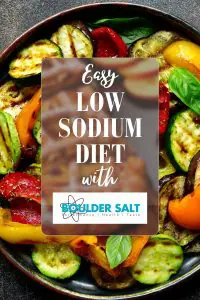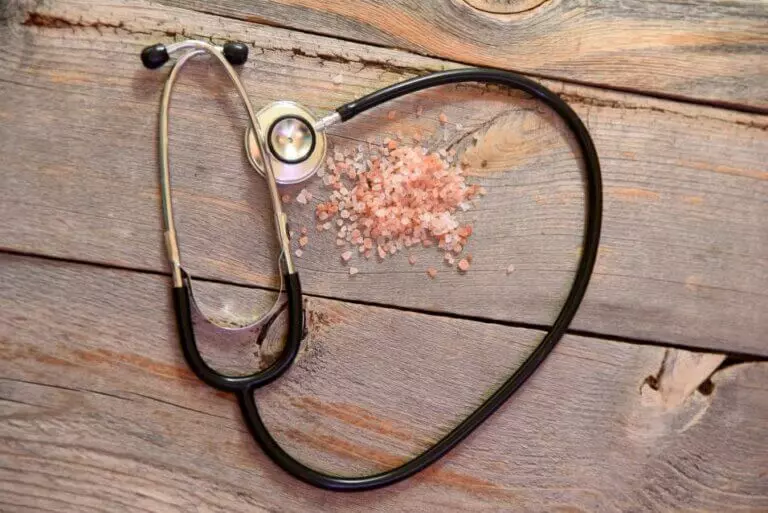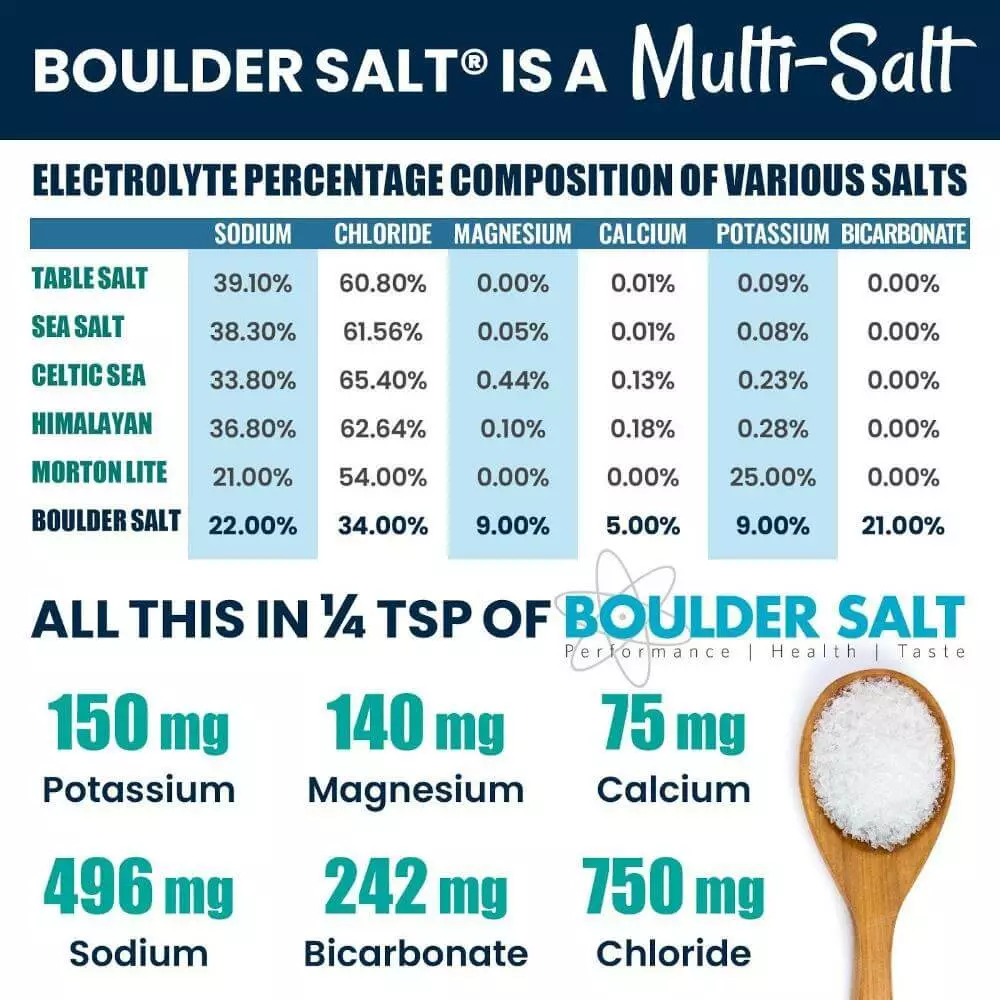
Low Sodium Diet Ideas Any Diet is Low Sodium with Boulder Salt! Are you looking for low sodium diet ideas and recipes

Salt tends to get a pretty bad rap in the media and it is often deserved!
Of course, when it comes to our diets, salt isn’t intrinsically good or bad. Using the right salt, however, can do our bodies a world of good, while the wrong one can be problematic at best. While almost every salt provides the sodium we must have, the imbalance arising from their lack of other essential elements often leads to harmful side-effects. These unintended consequences are mentioned often in literature and in person by nutritionists and sometimes doctors. The one balanced salt, our very own Boulder Salt, offers key health benefits with none of the harm. All other salts have various drawbacks that warrant caution and should be understood before using them.
With this in mind, let’s take a look at the top five salt health benefits.
Salt is largely made up of two minerals: sodium, and chloride. These minerals also function as electrolytes which help your body to carry out many of its functions.
Sodium and chloride aren’t the only minerals in the highest quality salt though. In Boulder Salt you also get magnesium, calcium, potassium, and bicarbonate. Not all salts are created equal though, so it can be handy to see what electrolytes you’re getting.
In the right ratio these electrolytes provide numerous key salt health benefits. In several ways they help our bodies to function, and for athletes, they can even prevent muscle cramping during intense exercise.
We tend not to hear much about the positive correlations between salt and health, but it plays a key role in keeping our bodies hydrated.
Along with potassium and chloride, sodium helps deliver water to the cells.
We’re all aware of the dangers of too much sodium in processed diet, but it does have its benefits. Sodium is an important part of a balanced diet, so rather than avoiding it altogether, it’s best to follow Centers for Disease Control (CDC) Guidelines
For athletes, this health aspect is particularly important. Your body needs to stay hydrated to maintain peak performance, but as you exercise you sweat, which releases both water and salt from the body. To maximize recovery, you need to replace lost sodium, along with other electrolytes.
Boulder Salt prevents both muscle cramping and restless leg syndrome due to its ideal blend of key electrolytes. Table salt, Himalayan, and Celtic salts all rely almost exclusively on sodium and chloride, which are not enough to best prevent cramping and restless leg syndrome.
The relatively high magnesium content of Boulder Salt is what makes it an extremely effective treatment for restless leg syndrome when magnesium deficiency is a contributing factor to the condition.
Cystic Fibrosis causes people to sweat more, meaning they lose more water and salt. To stay hydrated, they have to keep replenishing the minerals they’re losing.
People living with Cystic Fibrosis may benefit from a slightly higher salt intake than the average person. Each case is different, so it’s important to consult your doctor over any dietary changes, but salt can be very beneficial in these cases.
You might say, “Wait! Salt isn’t alkaline!” You would be correct if you were speaking about any other salt. Boulder Salt, however, is the first and only alkaline table salt. It raises the pH of water from 7.0 to 8.8! Its alkalinity makes it calming to the stomach, and helps neutralize a hyperacidic stomach. Boulder Salt supports the neutralization of metabolic acids and helps maintain a healthy pH This is very important in today’s world of an abundance of acid promoting foods.
Boulder salt maximized salt’s health benefits because of its carefully crafted electrolyte formulation..
As well as containing less sodium (the WHO recommends we consume less than 2g per day), it provides you with higher levels of magnesium (35% of RDA in a serving), calcium, potassium, and bicarbonate which are all important electrolytes.
This allows you to find the right balance with your salt intake and maximize the benefits of the mineralsAll these benefits come in a salt that tastes so good it won a blind taste test against sea salt and traditional table salt – 80% of participants preferred the taste of Boulder Salt

More to explore

Low Sodium Diet Ideas Any Diet is Low Sodium with Boulder Salt! Are you looking for low sodium diet ideas and recipes

Mountain View Welding does excellent work!
We make the highest recommendation for Loren Tonsing and the staff at https://mountainviewwelding.com Mountain View Welding does excellent work! Excellent communication to

Boulder Salt is in stock at The Raw Store!
Where in the world is Boulder Salt? This time the news is that Boulder Salt is stocked at The Raw Store in